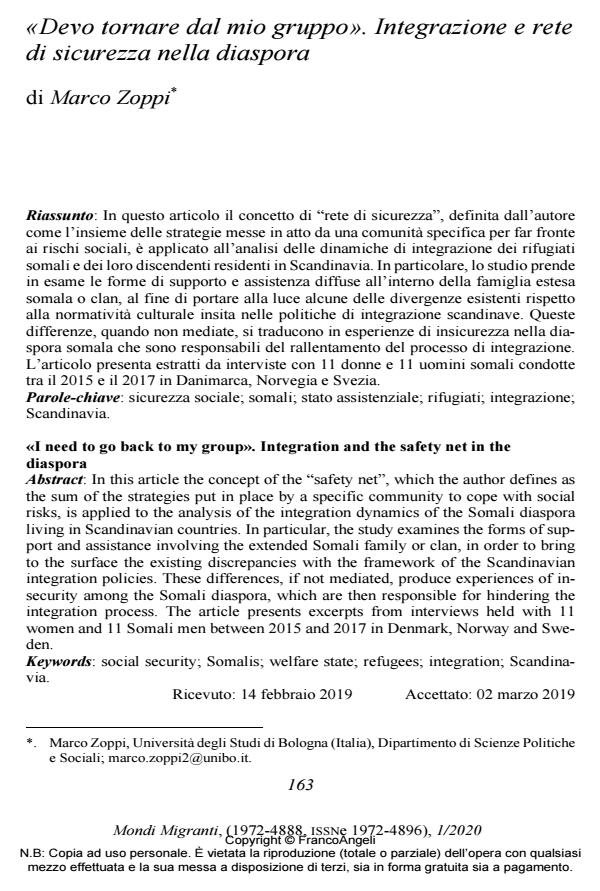«I need to go back to my group». Integration and the safety net in the diaspora
Journal title MONDI MIGRANTI
Author/s Marco Zoppi
Publishing Year 2020 Issue 2020/1
Language Italian Pages 22 P. 163-184 File size 197 KB
DOI 10.3280/MM2020-001009
DOI is like a bar code for intellectual property: to have more infomation
click here
Below, you can see the article first page
If you want to buy this article in PDF format, you can do it, following the instructions to buy download credits

FrancoAngeli is member of Publishers International Linking Association, Inc (PILA), a not-for-profit association which run the CrossRef service enabling links to and from online scholarly content.
In this article the concept of the "safety net", which the author defines as the sum of the strategies put in place by a specific community to cope with social risks, is applied to the analysis of the integration dynamics of the Somali diaspora living in Scandinavian countries. In particular, the study examines the forms of support and assistance involving the extended Somali family or clan, in order to bring to the surface the existing discrepancies with the framework of the Scandi-navian integration policies. These differences, if not mediated, produce experienc-es of insecurity among the Somali diaspora, which are then responsible for hinder-ing the integration process. The article presents excerpts from interviews held with 11 women and 11 Somali men between 2015 and 2017 in Denmark, Norway and Sweden.
Keywords: Social security; Somalis; welfare state; refugees; integration; Scandina-via.
Marco Zoppi, «Devo tornare dal mio gruppo». Integrazione e rete di sicurezza nella diaspora in "MONDI MIGRANTI" 1/2020, pp 163-184, DOI: 10.3280/MM2020-001009